BMW i7 vs Porsche Taycan Wagon - Differences and prices compared
Compare performance (659 HP vs 952 HP), boot space and price (99200 £ vs 88700 £ ) at a glance. Find out which car is the better choice for you – BMW i7 or Porsche Taycan Wagon?
Costs and Efficiency:
Price and efficiency are often the first things buyers look at. Here it becomes clear which model has the long-term edge – whether at the pump, the plug, or in purchase price.
Porsche Taycan Wagon has a to a small extent advantage in terms of price – it starts at 88700 £ , while the BMW i7 costs 99200 £ . That’s a price difference of around 10457 £.
In terms of energy consumption, the advantage goes to the Porsche Taycan Wagon: with 17.50 kWh per 100 km, it’s barely noticeable more efficient than the BMW i7 with 18.50 kWh. That’s a difference of about 1 kWh.
As for electric range, the Porsche Taycan Wagon performs hardly perceptible better – achieving up to 652 km, about 28 km more than the BMW i7.
Engine and Performance:
Under the bonnet, it becomes clear which model is tuned for sportiness and which one takes the lead when you hit the accelerator.
When it comes to engine power, the Porsche Taycan Wagon has a distinct edge – offering 952 HP compared to 659 HP. That’s roughly 293 HP more horsepower.
In acceleration from 0 to 100 km/h, the Porsche Taycan Wagon is convincingly quicker – completing the sprint in 2.40 s, while the BMW i7 takes 3.70 s. That’s about 1.30 s faster.
In terms of top speed, the Porsche Taycan Wagon performs barely noticeable better – reaching 260 km/h, while the BMW i7 tops out at 250 km/h. The difference is around 10 km/h.
There’s also a difference in torque: Porsche Taycan Wagon pulls hardly perceptible stronger with 1110 Nm compared to 1100 Nm. That’s about 10 Nm difference.
Space and Everyday Use:
Beyond pure performance, interior space and usability matter most in daily life. This is where you see which car is more practical and versatile.
Seats: BMW i7 offers a bit more seating capacity – 5 vs 4.
In curb weight, Porsche Taycan Wagon is a bit lighter – 2190 kg compared to 2595 kg. The difference is around 405 kg.
In terms of boot space, the BMW i7 offers to a small extent more room – 500 L compared to 446 L. That’s a difference of about 54 L.
When it comes to payload, Porsche Taycan Wagon a bit takes the win – 605 kg compared to 535 kg. That’s a difference of about 70 kg.
Who comes out on top?
Overall, the Porsche Taycan Wagon shows itself to be outperforms in nearly all aspects and secures the title of DriveDuel Champion.
It convinces with the more balanced overall package and proves to be the more versatile choice for everyday use.
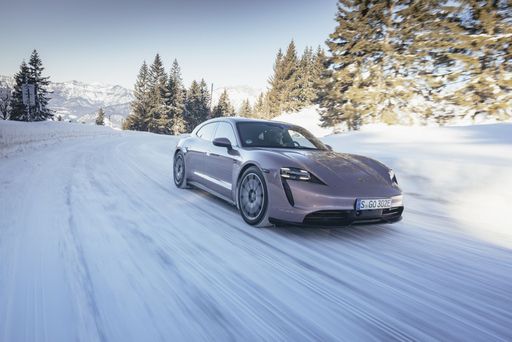
Porsche Taycan Wagon
Costs and Consumption
View detailed analysis
Engine and Performance
View detailed analysis
Dimensions and Body
View detailed analysis
BMW i7
The BMW i7 is a quietly imposing electric limousine that wraps advanced tech and traditional Bavarian comfort in a futuristic skin. For buyers after serene luxury with a mischievous streak, it pampers rear-seat occupants while reminding the driver that BMW still knows how to make a big car feel alive.
details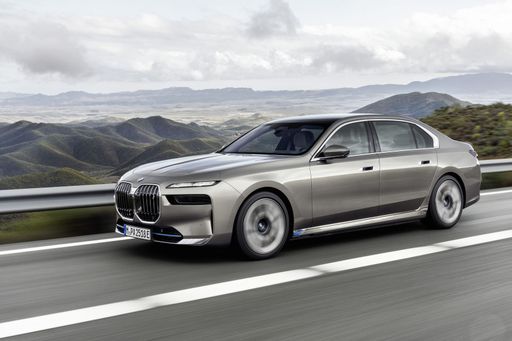

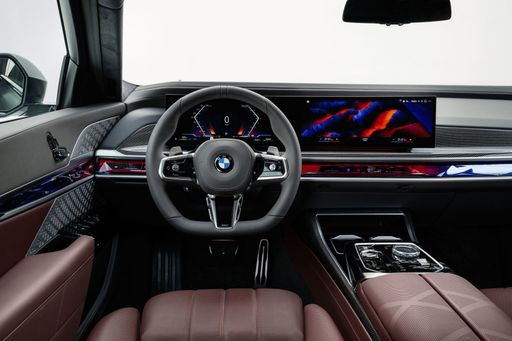
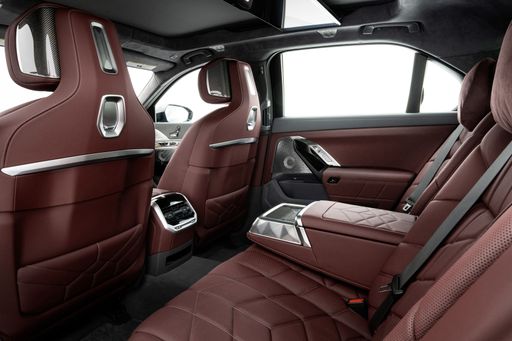
Porsche Taycan Wagon
The Porsche Taycan Cross Turismo dresses electric sportscar intent in a practical, slightly rugged estate body, delivering rare performance thrills with genuine everyday usefulness. It feels unmistakably Porsche inside — taut, premium and driver-focused — while the raised ride and extra luggage space make it as happy on a muddy weekend escape as it is on a twisty back road.
details
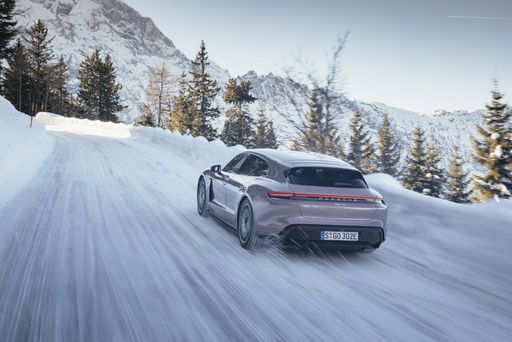
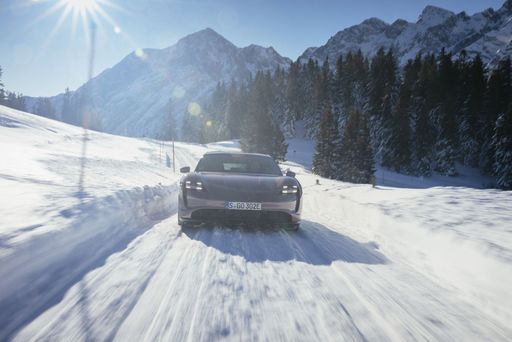
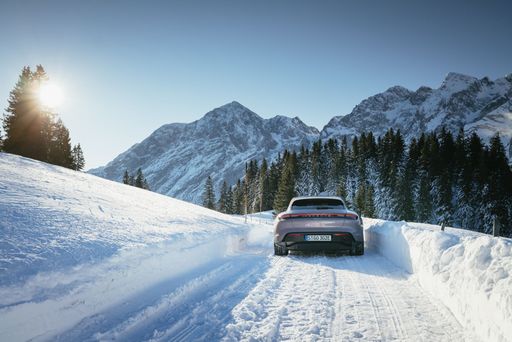
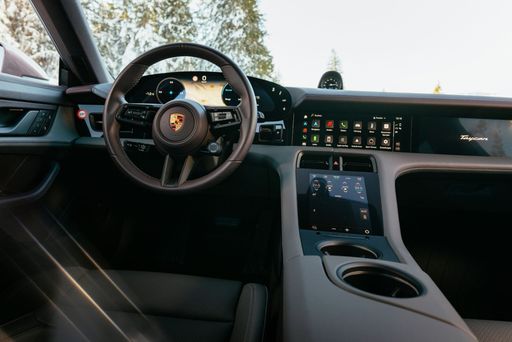
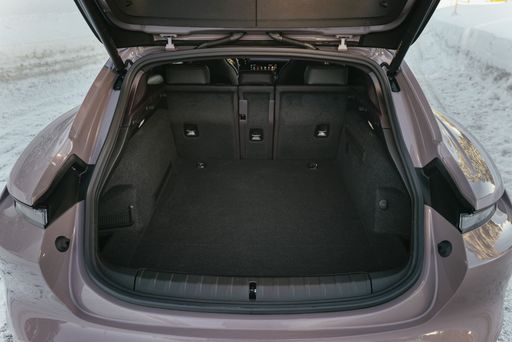
Costs and Consumption |
|
|---|---|
|
Price
99200 - 157000 £
|
Price
88700 - 182100 £
|
|
Consumption L/100km
-
|
Consumption L/100km
-
|
|
Consumption kWh/100km
18.5 - 20.8 kWh
|
Consumption kWh/100km
17.5 - 19 kWh
|
|
Electric Range
559 - 624 km
|
Electric Range
537 - 652 km
|
|
Battery Capacity
101.70 kWh
|
Battery Capacity
82.3 - 97 kWh
|
|
co2
0 g/km
|
co2
0 g/km
|
|
Fuel tank capacity
-
|
Fuel tank capacity
-
|
Dimensions and Body |
|
|---|---|
|
Body Type
Sedan
|
Body Type
Estate
|
|
Seats
5
|
Seats
4
|
|
Doors
4
|
Doors
5
|
|
Curb weight
2595 - 2770 kg
|
Curb weight
2190 - 2400 kg
|
|
Trunk capacity
500 L
|
Trunk capacity
405 - 446 L
|
|
Length
5391 mm
|
Length
4962 - 4974 mm
|
|
Width
1950 mm
|
Width
1966 - 1967 mm
|
|
Height
1544 mm
|
Height
1388 - 1412 mm
|
|
Max trunk capacity
-
|
Max trunk capacity
1171 - 1212 L
|
|
Payload
480 - 535 kg
|
Payload
475 - 605 kg
|
Engine and Performance |
|
|---|---|
|
Engine Type
Electric
|
Engine Type
Electric
|
|
Transmission
Automatic
|
Transmission
Automatic
|
|
Transmission Detail
Reduction Gearbox
|
Transmission Detail
Reduction Gearbox
|
|
Drive Type
Rear-Wheel Drive, All-Wheel Drive
|
Drive Type
All-Wheel Drive, Rear-Wheel Drive
|
|
Power HP
455 - 659 HP
|
Power HP
408 - 952 HP
|
|
Acceleration 0-100km/h
3.7 - 5.5 s
|
Acceleration 0-100km/h
2.4 - 4.8 s
|
|
Max Speed
205 - 250 km/h
|
Max Speed
220 - 260 km/h
|
|
Torque
650 - 1100 Nm
|
Torque
410 - 1110 Nm
|
|
Number of Cylinders
-
|
Number of Cylinders
-
|
|
Power kW
335 - 485 kW
|
Power kW
300 - 700 kW
|
|
Engine capacity
-
|
Engine capacity
-
|
General |
|
|---|---|
|
Model Year
2022 - 2023
|
Model Year
2024 - 2025
|
|
CO2 Efficiency Class
A
|
CO2 Efficiency Class
A
|
|
Brand
BMW
|
Brand
Porsche
|
Is the BMW i7 offered with different drivetrains?
Available configurations include Rear-Wheel Drive or All-Wheel Drive.




